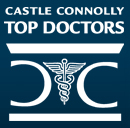 While these times we’re living in are often called the Information Age, you could make an argument that this is the Disinformation Age. From politicians who outright lie over and over to make false claims seem true to websites circulating stories they know are false, sometimes it’s hard to tell the truth from fiction.
While these times we’re living in are often called the Information Age, you could make an argument that this is the Disinformation Age. From politicians who outright lie over and over to make false claims seem true to websites circulating stories they know are false, sometimes it’s hard to tell the truth from fiction.
The aesthetic world isn’t immune. In this business, patients can be misled by doctors who claim to be “board certified, when their true credentials show they are not.
The problem was detailed recently in a story in the official medical journal of the American Society of Plastic Surgeons (ASPS), Plastic and Reconstructive Surgery. The story highlighted a recent study showing that consumers don’t understand the different between the terms “plastic surgeon” and “cosmetic surgeon.” But the difference is huge and can have a real impact on outcomes for unsuspecting patients having cosmetic surgery.
Board certified?
In the study, researchers designed an Internet survey to assess public perceptions of aesthetic or cosmetic surgery. A total of 5,135 respondents completed the survey.
Almost 90 percent of respondents incorrectly believed that surgeons must have special credentials and train to perform cosmetic surgery or to advertise themselves as aesthetic/cosmetic/plastic surgeons.
Over half of the respondents were unsure about the training needed to become a “board certified” plastic or cosmetic surgeon. In truth, surgeons need at least six years of residency training to be certified by the American Board of Plastic Surgery (ABPS). This compares to only one year for certification by the American Board of Cosmetic Surgery (ABCS). But these are not comparable organizations — the American Board of Medical Specialties does not recognize ABCS certification.
This details the problem. One year of surgical experience is hardly enough, but patients see the doctor is “board certified,” not understanding it is the ABCS board, which is a worthless, and unrecognized, certification.
As more and more people contemplate having an aesthetic procedure done, there is a serious financial incentive for physicians to add these surgeries to their practices. The study’s author, Dr. Rod J. Rohrich, editor-in-chief of Plastic and Reconstructive Surgery, comments, “A growing number of physicians without training in plastic and reconstructive surgery are performing surgery to improve one’s appearance, often at the expense of patient safety and outcomes.”
Dr. Rohrich explains how they are doing this. “With the current system, physicians can capitalize on confusing jargon to convince patients that they are appropriately qualified to perform the procedures they advertise their expertise in,” he says.
The key for patients is to do their homework, and have cosmetic surgery performed by surgeons who are board certified by the American Board of Plastic Surgery. Dr. Lavey is board certified by the ABPS.
So, don’t be fooled by doctors claiming to be board certified when there is only one certification that means anything — the American Board of Plastic Surgery. Trust the experience and credentials of Dr. Lavey. Call us at 925-820-3633 to schedule a consultation.








No comments yet.